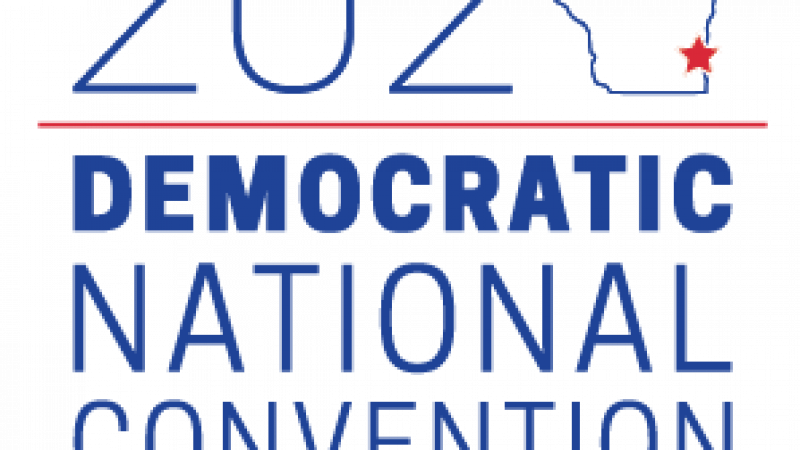The DNC bar hours bill is back. Municipalities could allow bars and restaurants to stay open until 4 a.m. for up to four weeks a year, under a provision in Gov. Tony Evers’ budget.
But the state’s bar industry isn’t on board this time.
The provision would ensure cities hosting large events — such as Milwaukee with the 2020 Democratic National Convention — could accommodate a late-drinking crowd without coming back to the Capitol for special permission on a case-by-case basis.
Under the plan, restaurants, taverns and other businesses operating under a liquor sales license for on-premises consumption that obtain a special event permit from the municipality, could extend closing hours to 4 a.m. for up to eight consecutive days, up to four times per year.
The provision aims to give local governments flexibility to extend hours, as appropriate, as their communities have special events. While it was a part of the DNC conversation, the proposal extends to other events happening across the state that may draw statewide or national attendance, according to the governor’s office.
The DNC bar hours bill received bipartisan support and praise from the Tavern League of Wisconsin. But this budget proposal, Tavern League lobbyist Scott Stenger argues, is a different conversation.
“I’m not aware of anybody statewide that is sitting back and saying ‘we need to be open longer,’ and frankly it has the potential to be really problematic,” Stenger said. “Rolling closing hours is not an effective way that has more unintended consequences, and I’m not sure what they’re trying to solve.”
A patchwork of closing times statewide for special events could lead to more drunken driving incidents, according to Mothers Against Drunk Driving Wisconsin. John Walker, the executive director for MADD Wisconsin, said the organization supports uniform closing times for establishments that serve alcohol to avoid creating “a dangerous scenario” that patrons will bar hop for drinks, increasing the risk of drunken driving.
Stenger explained that a statewide bar closing time was implemented to prevent people from bar hopping outside city limits.
As for the DNC bar hours bill, which failed to pass last session, the aim was to give attendees a chance to grab dinner and drinks after meetings, which the DNC argued didn’t wrap up until late into the evening or early morning.
“The DNC had a specific problem to solve. It was a one-time later closing hours, specific for the DNC. That issue is behind us, and I’m not aware of any scenario that 2 a.m. or 2:30 a.m. on the weekends is not late enough,” Stenger said. “I don’t know what the need is here. I’m not aware of any event in the state that people are saying ‘Well, we need to be able to stay open past 2 a.m.’”
Supper club owner and former Tavern League President Rep. Rob Swearingen, R-Rhinelander, said Wisconsin should maintain consistent bar closing hours to help law enforcement do its job. Swearingen co-sponsored the DNC bar hour bill.
“I don’t think that this idea is well thought out and to include it in the budget makes no sense,” he said, adding that special events, such as the DNC, should be taken on a case-by-case basis.
“Events similar to Summerfest have survived since their inception under current bar closing times that are dictated under Chapter 125,” Swearingen said, referring to the state statute on alcohol beverages and sales. “I am in high hopes that this provision gets removed from the current budget proposal as it is not necessary.”
The League of Wisconsin Municipalities supports the measure, calling it a tool for communities to highlight their unique events, such as the Ryder Cup, DNC, RNC, Summerfest or other music festivals.
“We would be supportive in the sense that communities can make their own decision and these policy discussions could happen at the local level,” said Curt Witynski, deputy executive director of the league, which also backed the DNC bar hour bill.
“As long as it’s a local decision, we’re good with it,” Witynski said, adding that the proposal is not a high priority for the league.
And not all municipalities would be impacted. Per ordinance, some cities such as Eau Claire do not give out special event permits to private businesses — only for events taking place on city-owned property, such as Eau Claire Marathon Weekend and the city’s Festival in the Pines, according to the city’s attorney office.
“I cannot think of an instance where a bar would ever take out a special events permit, and because the city doesn’t allow alcohol in streets, that would never happen where they’d take it out and serve on the street,” according to Tiffany Weiss, a business analyst for the Eau Claire Community Services Department.
Weiss said if passed, she can see how this could be used for Summerfest or the DNC in Milwaukee, but not in Eau Claire.
-By Stephanie Hoff
WisBusiness.com



